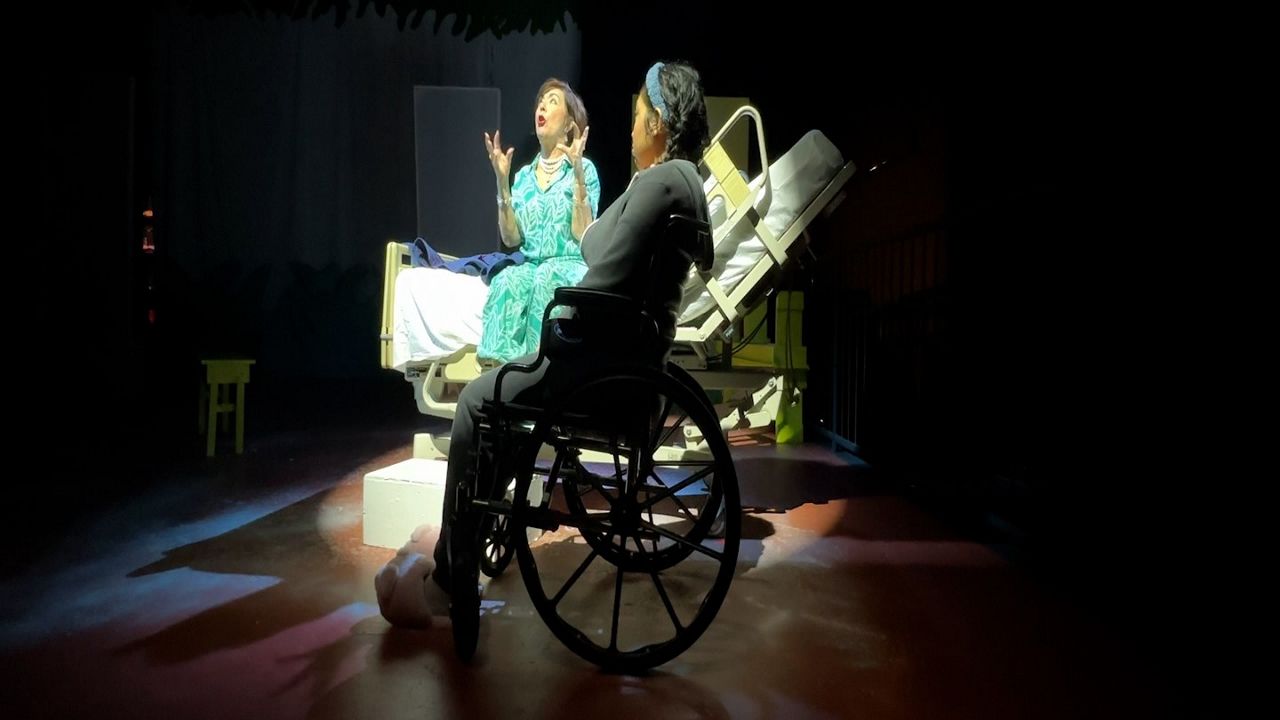LOS ANGELES — When you want something done, do it yourself, which is exactly what Josefina López did. The Mexican-born powerhouse knew she had stories to tell, but no one seemed willing to let her tell them.
“I was told a lot of racist, sexist things,” she recalled, “and rather than try to fit into a theater that was going to disregard, dismiss me or keep me at a certain level, I said, ‘You know what? I’m gonna start my own theater.’”
It is with that determination that she opened the doors of Casa 0101. Her goal was not only to showcase her own work but also to give space to artists who she says weren’t being seen on mainstream stages — Latinos, women, members of the LGBT community.
Over 23 years, the company has produced over 200 plays, launched the area’s first Latino LGBTQ Theater Festival, and empowered over 50 Latina women to write, direct and produce their own shows.
“I tell people like it’s women’s HERstory month every month here at Casa and it’s also Latino Heritage Month, every month,” López said. “We really celebrate diverse voices, not just because it’s the in thing to do, but it’s because it’s the right thing to do.”
Her theater is located in Boyle Heights, which is exactly where she wants it.
“It’s my barrio. It’s my community,” she said.
She was tired of always seeing constant negative depictions of Boyle Heights on the news, in TV and film and made it her mission to change the narrative and the perception of the neighborhood.
“This community is always shown as grainy and bad. This is where you get your drugs,” López frowned. “And I tell people, ‘No! This is where you get your therapy, your healing, your inspiration. This is where you get art and activism.”
Art is all around her Casa, from the gallery inside where she displays primarily the work of female artists, to the murals outside in the loading dock depicting saints, the masks of theater and a portrait of López herself.

“I like to find the beauty and everything,” she said, even as she stood by the dumpster located right between the murals. “And I see it in my community.”
López made a name for herself with her play, “Real Women Have Curves,” and later co-authored the screenplay for the film. Her newest play opening this weekend at Casa 0101 is called Queen of the Rumba. It’s inspired by the story of Cuban dancer Alicia Parlá, who is played by two actresses, Angel Juarez and Paloma Morales who is a bit of a queen of the rumba herself.
Morales is active on social media, often posting videos of her dancing in her living room, her kitchen, down hallways. She feels like she was meant to play the part of Parlá.
“I’m Cuban. She was born in Havana,” she pointed out, saying that both she and the character she plays had very strict fathers. “I was born to be a rumbera like Alicia. And when I was about 8 years old, [my father] said, ‘no more of this Rumba! You have to go to ballet school!’”
She studied ballet for about 10 years but never quite conformed to its classical style.
“When I would do tendu or jeté, I would Rumba,” she laughed, her body breaking into a shimmy.
Juarez, who is also a singer and songwriter, plays the younger Alicia. She first met López a few years ago at a Casa 0101 event and has been so inspired by her and her journey. There was a period of time when López was undocumented, like Juarez’s parents. Her family struggled for years, were evicted twice and lived for a while in a shelter. She said what López gives the community and especially the young people who take free acting classes at CASA 0101 is hope.
“It is very hard to be a Latina, because sometimes your parents, you know, they don’t have papers, or even you don’t have papers, and you feel helpless, like you want to swim upwards, but it really feels impossible,” Juarez said, her giant eyes cast up, looking for a way out. “So seeing someone that is like you that went through what you went through, doing it and doing what she loves, it’s everything to us, and it really makes us go for it.”
Corky Dominguez agrees. In addition to directing “Queen of the Rumba,” he’s also an instructor in Casa 0101’s youth programs and he’s seen firsthand the impact that being involved in theater can have a young person’s life.
“These are experiences that these kids will remember for a lifetime,” he said. “It’s free for most of the young people…but then the parents get involved. And now there’s like a parent component where the parents are writing, and they’re putting on little readings and little plays too, as well. This theater is the opportunity for the stories that would normally not be heard, to be heard.”
To further amplify those stories, López’ goal is to establish a permanent classroom where she can start what she referred to as a Latinx screenwriting academy.
“You know we’ve been marginalized to be the supporting characters in a white man story,” she explained, “And we’re saying ‘No, no, no. We are the heroes and heroines of our story.’”
Theater, she insists, shouldn’t be a country club, something just for the rich. Access to the arts is social justice and to that end, theater needs to exist everywhere and include everyone.
“When you bring an audience to witness, somebody sharing their truth, healing happens, transformation happens,” López said, “and so theater is probably the best therapy there is on the planet disguised as entertainment.”
She invites everyone to her Casa for a bit of both.



